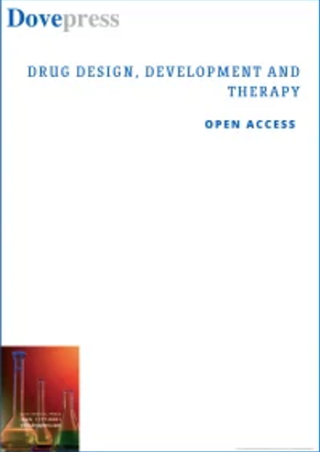抗癌药物的心脏毒性:分子机制、临床管理和创新治疗
IF 4.7
2区 医学
Q1 CHEMISTRY, MEDICINAL
引用次数: 0
摘要
摘要:随着治疗手段的不断完善,肿瘤患者的生存率逐年提高,而与肿瘤治疗相关的心血管并发症也日益突出。探索肿瘤治疗相关心血管毒性(CTR-CVT)的发生机制和预防策略,仍是近年来心肿瘤领域的研究热点之一。抗癌药物的心脏毒性包括心力衰竭、心肌炎、高血压、心律失常和血管毒性,其机理与血管内皮功能障碍、铁变态反应、线粒体功能障碍和氧化应激有关。针对不同抗癌药物诱发的心脏毒性,人们采取了各种治疗措施,如减少抗癌药物的蓄积、改用心脏毒性较小的药物、使用心脏保护药物和早期检测等。由于改善抗癌药物引起的心脏毒性的治疗方法非常有限,一些创新研究正从动物研究转向人体研究。例如线粒体移植。线粒体移植已在体内和体外实验中证明有效。最近的几项研究表明,细胞间线粒体转移可以改善多柔比星(DOX)诱导的心脏毒性,为抗癌药物诱导的心脏毒性的创新疗法奠定了基础。在这篇综述中,我们将从发病机制和治疗方法两方面探讨抗癌药物诱导的心脏毒性的现状,重点关注线粒体移植,希望这篇综述能给大家带来一些启发。关键词:癌症治疗相关心血管毒性;CTR-CVT;线粒体功能障碍;氧化应激;铁氧化酶;线粒体移植本文章由计算机程序翻译,如有差异,请以英文原文为准。
Cardiotoxicity of Anticancer Drugs: Molecular Mechanisms, Clinical Management and Innovative Treatment
Abstract: With the continuous refinement of therapeutic measures, the survival rate of tumor patients has been improving year by year, while cardiovascular complications related to cancer therapy have become increasingly prominent. Exploring the mechanism and prevention strategy of cancer therapy-related cardiovascular toxicity (CTR-CVT) remains one of the research hotspots in the field of Cardio-Oncology in recent years. Cardiotoxicity of anticancer drugs involves heart failure, myocarditis, hypertension, arrhythmias and vascular toxicity, mechanistically related to vascular endothelial dysfunction, ferroptosis, mitochondrial dysfunction and oxidative stress. To address the cardiotoxicity induced by different anticancer drugs, various therapeutic measures have been put in place, such as reducing the accumulation of anticancer drugs, shifting to drugs with less cardiotoxicity, using cardioprotective drugs, and early detection. Due to the very limited treatments available to ameliorate anticancer drugs-induced cardiotoxicity, a few innovations are being shifted from animal studies to human studies. Examples include mitochondrial transplantation. Mitochondrial transplantation has been proven to be effective in in vivo and in vitro experiments. Several recent studies have demonstrated that intercellular mitochondrial transfer can ameliorate doxorubicin(DOX)-induced cardiotoxicity, laying the foundation for innovative therapies in anticancer drugs-induced cardiotoxicity. In this review, we will discuss the current status of anticancer drugs-induced cardiotoxicity in terms of the pathogenesis and treatment, with a focus on mitochondrial transplantation, and we hope that this review will bring some inspiration to you.
Keywords: cancer therapy-related cardiovascular toxicity, CTR-CVT, mitochondrial dysfunction, oxidative stress, ferroptosis, mitochondrial transplantation
Keywords: cancer therapy-related cardiovascular toxicity, CTR-CVT, mitochondrial dysfunction, oxidative stress, ferroptosis, mitochondrial transplantation
求助全文
通过发布文献求助,成功后即可免费获取论文全文。
去求助
来源期刊

Drug Design, Development and Therapy
CHEMISTRY, MEDICINAL-PHARMACOLOGY & PHARMACY
CiteScore
9.00
自引率
0.00%
发文量
382
审稿时长
>12 weeks
期刊介绍:
Drug Design, Development and Therapy is an international, peer-reviewed, open access journal that spans the spectrum of drug design, discovery and development through to clinical applications.
The journal is characterized by the rapid reporting of high-quality original research, reviews, expert opinions, commentary and clinical studies in all therapeutic areas.
Specific topics covered by the journal include:
Drug target identification and validation
Phenotypic screening and target deconvolution
Biochemical analyses of drug targets and their pathways
New methods or relevant applications in molecular/drug design and computer-aided drug discovery*
Design, synthesis, and biological evaluation of novel biologically active compounds (including diagnostics or chemical probes)
Structural or molecular biological studies elucidating molecular recognition processes
Fragment-based drug discovery
Pharmaceutical/red biotechnology
Isolation, structural characterization, (bio)synthesis, bioengineering and pharmacological evaluation of natural products**
Distribution, pharmacokinetics and metabolic transformations of drugs or biologically active compounds in drug development
Drug delivery and formulation (design and characterization of dosage forms, release mechanisms and in vivo testing)
Preclinical development studies
Translational animal models
Mechanisms of action and signalling pathways
Toxicology
Gene therapy, cell therapy and immunotherapy
Personalized medicine and pharmacogenomics
Clinical drug evaluation
Patient safety and sustained use of medicines.
 求助内容:
求助内容: 应助结果提醒方式:
应助结果提醒方式:


